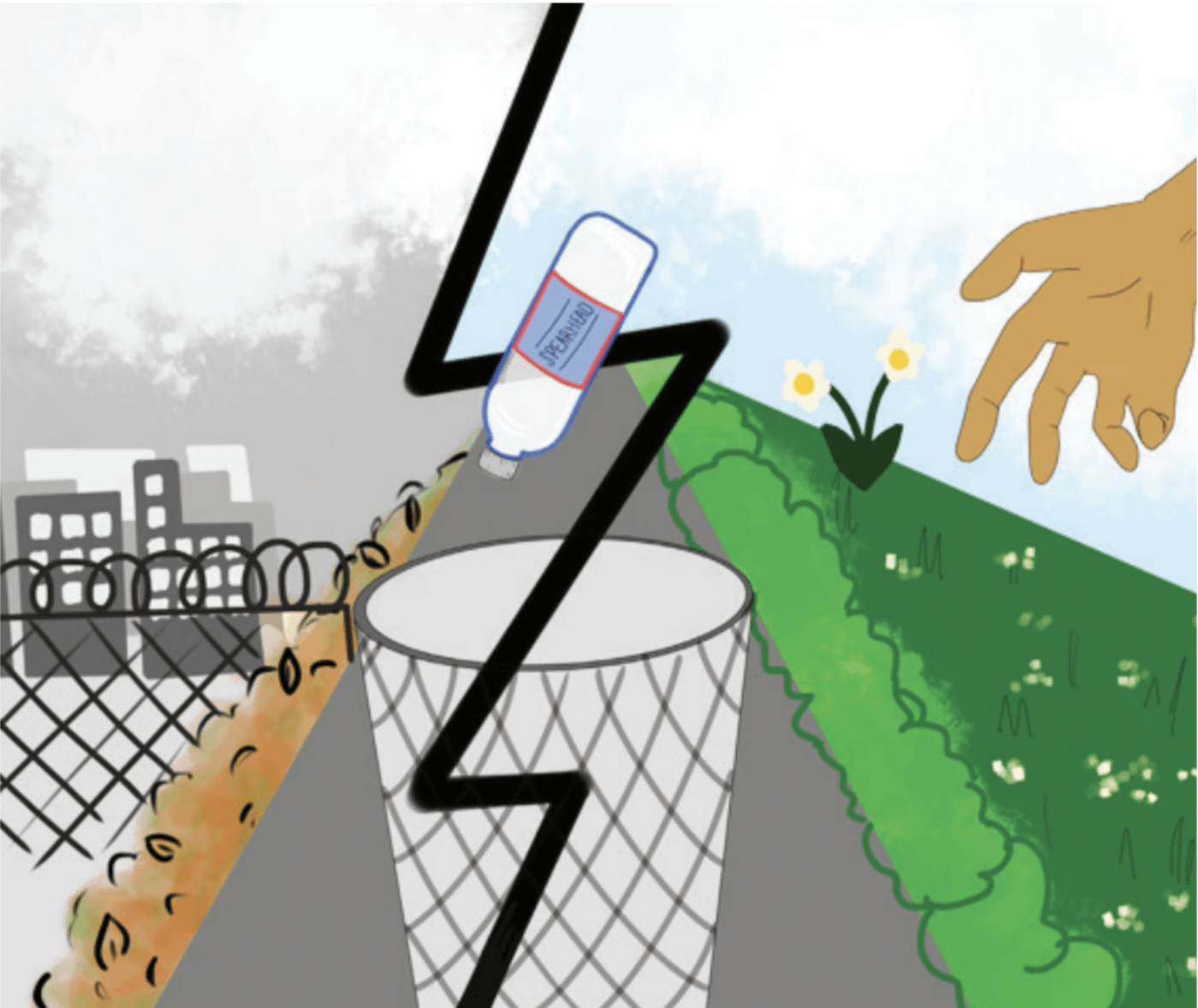Imagine you are a plastic bottle thrown into a blue bin. In the dark, cramped space, you think about what comes next. The bin will be emptied and you will be transported to the recycling plant, where you will probably be melted down and turned into a shiny new bottle…right?
Wrong. For years consumers have been told to recycle their plastic for the sake of the environment in the hopes that their used plastic can be turned into something else. But according to the Environmental Protection Agency, less than 10% of recycled plastic is actually repurposed into new material. A 2022 Greenpeace report on recycling plastic in the U.S. shows that 95% is dumped in a landfill or ends up in the ocean.
Recycling is not nearly as effective as most people think, partly because of big companies’ misleading advertising. In fact, big companies such as Coca Cola and Amazon decided to form a front group called Keep America Beautiful in order to distribute advertisements encouraging people to recycle their products. This is problematic because these attempts to appear environmentally friendly are a ploy to get consumers to buy their plastic products.
Think about it. If people see or hear news stories about pollution and climate change, and they understand the significant contributions of buying and disposing of single-use plastics to these issues, their natural instinct is to reduce their consumption of plastic products.
But buying less plastic can be hard, and this is where companies such as the ones with Keep America Beautiful swoop in to save the day and say: Simply keep on buying as much plastic products as you usually do, and then you can throw them away and feel good about yourself!
Except not all the products that are labeled as recyclable are actually recyclable. Let me explain. When the first climate and environmental activists voiced their concerns, plastic manufacturing companies looked into it and discovered that plastic was highly degradable (flimsy) and that the recycling process was very expensive. It was much cheaper to just make more plastic using fossil fuels.
But big plastic companies couldn’t let the public at large know that they were lying about their products being environmentally friendly, so to trick people into recycling plastic packaging, they printed it with a symbol that looks very similar to the actual recycling symbol.
This symbol was the same triangle formed out of three arrows, and it was designed to make the average buyer throw the product into the recycling bin, although in reality it will end up in a landfill.
In fact, out of the seven categories of plastic products that are recycled, including water bottles, grocery bags, plastic film and straws, only the products in two of the categories are even likely to be reused. These two categories are made up of PET and HDPE plastics, which include milk jugs, soda bottles and shampoo bottles.
At this point, you might be wondering whether it’s worth recycling if it won’t change anything. That is not what I’m saying. Yes, consumers should continue to recycle products, mainly paper, but the point I’m trying to make is that in order to actually make a difference, people need to BUY. LESS. PLASTIC.
We need to stop relying so heavily on disposable plastic products when the companies selling them are focused only on making money, not on saving the planet for future generations.
Some small actions a high school student can take to help are using reusable water bottles and paper grocery bags instead of the traditional plastic ones. I know it’s hard, trying to reduce plastic consumption on top of everything else we have to do; it is for me, but imagine the difference we could make if we just try.
However, the best advice that can be given to consumers is to shop as if recycling doesn’t exist, as if every piece of plastic bought will end up in a landfill or the ocean. Because that is pretty close to the reality — unless we can figure out a way to eliminate plastic waste.
In the meantime, it’s important not to fall for the corporate schemes of big industries. Instead, research the truth to make the best decisions for yourself and for the planet. Also, buy less plastic.
— By Kate Barnes



